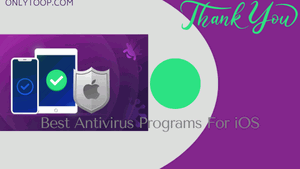How To Increase The Ranking Of Website Or Blog (Important 5 SEO Tips)
Follow These Tips To Improve Your Search Engine Optimization (SEO) And Rank Your Website At The Top Of Search Engine Results.
1. Publish Qualified And Original Content
Quality Content Is The Best Way To Increase Your Search Engine Ranking And There Is No Better Option Than This. Quality Content Created Specifically For Your Intended User Drives Site Traffic, Thereby Improving The Authority And Relevance Of Your Site. Hone Your Web Writing Skills.
Keywords
Research And Target A Specific Keyword For Each Page Of Your Website. Think About How Your User Might Find That Specific Page With The Keyword!
Multiple Keyword Phrases
It Is Very Difficult To Rank Multiple Keyword Phrases For A Web-Page – Unless Those Phrases Are Very Similar. A Single Page Can Be Able To Rank Both The Keywords “Biomedical Engineering Jobs” And “Biomedical Engineering Careers”. With One Page For “Student Affairs” And “Dean Of Students” Or “Gender Discrimination” And “Violence Reporting Procedures”, It Is Unlikely To Rank. If You Want To Rank Your Website In Multiple Keywords, Then You Have To Create A Separate Web-Page For Each Of The Targeted Keywords.
Placing Keywords
Once Your Keyword Phrase Is Selected For A Given Page, Consider These Questions
- Can I Use Some Keywords Or All Keywords In The Page URL?
- Can I Use Some Keywords Or All Keywords In The Page Title?
- Can I Use Some Keywords Or All Keywords In Page Headings And Subheadings?
Answering Yes To These Questions Can Improve Your Search Engine Ranking. However, Be Natural And User-Friendly. For Example, You Don’t Want A Word To Appear Three Or More Times In The URL Or Page Title And The Keyword Phrase Repeated In Each Title. Readability And Usability Can Also Increase Or Decrease Ranking In Search Engines.
Content
Page URL, Title, Heading And Content Is The Most Influential On Search Engine Ranking . Repeat Your Keyword Phrase Several Times Throughout The Page—Once Or Twice In The Opening And Closing Paragraphs, And Two To Four Times Throughout The Rest Of The Content.
Be Sure To Use Bold, Italics, Heading Tags (Especially An H1), And Other Tags To Highlight These Keyword Phrases—But Don’t Overdo It. You Still Want Users To Read Your Language And Writing Style Naturally. Never Give Up On Good Writing For SEO . The Best Pages Are Written For The User, Not The Search Engine.
2. Update Your Content Regularly
You’ve Probably Noticed That We’re Paying Very Close Attention To Content. Search Engines Do The Same Thing. Regularly Updated Content Is Seen As One Of The Best Indicators Of A Site’s Worth, So It’s Important To Keep It Fresh. Audit Your Content On A Set Schedule And Update As Needed.
3. Metadata
Your Website Time, Each Page Design Metadata Is A Space Between The <Head> Tag To Insert (Metadata), Or Contain Information About The Content Of Your Page. If You Have A CMS Site Originally Created By The UMC Web Team , This Data Will Already Be Filled In For You. However, It Is Important For You To Review And Update Metadata As Your Site Changes Over Time.
Title Metadata
Title Metadata Is Responsible For The Page Title Displayed At The Top Of The Browser Window And As The Headline In Search Engine Results . This Is The Most Important Metadata Of Your Page. For Those With A CMS Website, The Web Team Has Developed An Automated System To Generate A Meta Title For Each Webpage Based On Your Page Title.
Description Metadata
Description Metadata Is A Text Description That The Browser Can Use To Return Your Page Search. Think Of It As A Window Display Of Your Site—A Concise And Engaging Description Of What’s On It, With The Goal Of Encouraging People To Enter. A Good Description Metadata Will Usually Consist Of Two Complete Sentences. Search Engines May Not Always Use Your Meta Description, But It Is Important To Give Them A Choice.
Keyword Metadata
Keyword Metadata Is Rarely Used To Improve Search Engine Rankings. However, You Already Know Your Keyword Phrases, So There Is No Harm In Adding Them To Your Keyword Metadata. You’ll Want To Include A Variety Of Phrases. As A General Rule, Try To Keep It To About 3-7 Phrases With Each Phrase Consisting Of 1-4 Words.
4. External Link To Good Website
Focus On Creating Qualified Links Within Text. Instead Of Having A “Click Here” Link, Try Typing A Word Or A Name(S). “Click Here” Has No Search Engine Value Beyond The Attached URL, Whereas Putting Your Keyword Here Will Improve Your Search Engine Ranking As Well As The Ranking Of The Page You Are Linking To. Always Use Descriptive Links By Linking To Keywords – This Not Only Improves Search Engine Optimization But Also Adds Value To Your Users!
5.Alt Using Tags Or Alternative Text Descriptions To
Always Describe Your Visual And Video Media Using Alt Tags Or Alternative Text Descriptions. They Allow Search Engines To Locate Your Page, Which Is Important—Especially For Those Who Use A Text-Only Browser Or Screen Reader.
